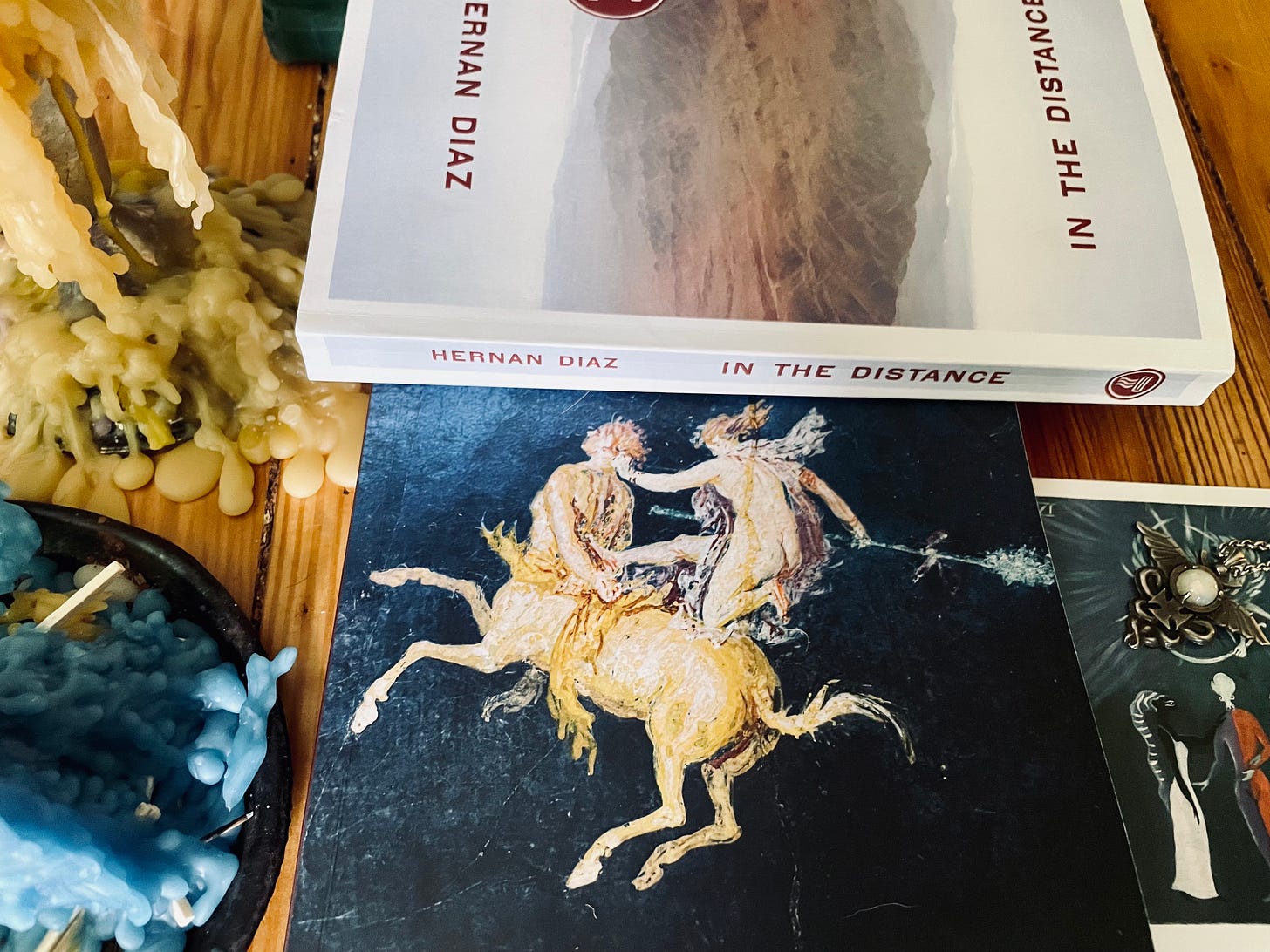Chiron beyond the cave
how Chiron functions in story and the chart; why it's been a tender month, in particular, for "elderly millennials."
Håkan can’t help but gain notoriety. His body is too big, his disposition is too soft, and he finds himself without care, companion, or shelter at too young an age, after he loses his older brother in the chaos and smelt of attempting to join in on the nineteenth-century gold rush. What seems like it might only be a brief, unlucky separation from his beloved sibling, a few heart-pounding moments of disorientation amongst the crowds at the city docks, perhaps easily remedied in another tale, sets in motion a lifelong trajectory of loneliness and wandering for Håkan in author Hernan Diaz’s anti-Western, anti-tale of the American Dream.
Does this life of solitude suit what is already a discerning and avoidant disposition in Håkan, who from the first paragraphs of the novel exhibits a reserve from and about the rest of the human world that few other characters swept up in the manic, mantic rush of trying to make their fortune seem to access or understand? Or does the circumstance of sudden loss against the backdrop of “Manifest Destiny” greed force its way into the young boy, requiring for him to turn his life into a secret, a cavern, an unknowable, fuzzy distance so as to avoid as much as possible the drama of those who would abuse his powerlessness for their own gain? These questions lend themselves to a kind of hyperbole, however much they raise some of the central themes of Diaz’s In the Distance, because while Håkan’s life is hard, it is bereft of neither beauty nor love. In fact, one might even make the argument that his strange and solitary existence traveling back and forth across the mountains and plains of the early United States is more full of wonder and connection than anyone else’s in the novel, precisely by virtue of Håkan’s uncanny ability to open himself to the unfairness of his losses, to accept the mantle of a dream and its burden, a gift and a cross he never once asked for himself, but learns how to creatively deal with anyways.
*
Chiron, Greek mythology’s “immortal and wisest” of centaurs, can’t help but gain notoriety. His body is too strange, his disposition is too kind, and he finds himself abandoned to be raised by a Sun god on the top of a lonely mountain after his mother can’t find it in herself to love a body that appears as half-human, half-beast. What seems like it might only be a myth in service of some greater god’s light and generosity, or the side plot to yet another hero’s journey, sets in motion instead a myth unique among all Greek myths: Chiron’s initial loneliness and abandonment gives way to one of the only stories of a divine being voluntarily sacrificing his own immortality. When Chiron suffers an unhealable injury through no fault of his own, he at first retreats howling into his cave, and later gives up his divinity at the story’s end.
Does Chiron choose death over immortality out of resentment and rage when one of his students—the hero Hercules—accidentally wounds him in the midst of a battle that Chiron himself has only entered in the hopes of trying to end it peacefully? Or is Chiron’s sacrifice of divinity given in the spirit of magnanimity and acceptance: “Let me die so that Prometheus, who gave fire to humans and has been unfairly punished by the greatest of all gods, may live?” These questions lend themselves to a kind of hyperbole however much they raise some of the central themes of the “wounded healer” myth, because while Chiron’s demise is brutal and arbitrary, his life is neither bereft of beauty nor love. In fact, one might even make the argument that Chiron’s strange and solitary existence as the mountain-top teacher of children and heroes and artists alike is more full of wonder and connection than anyone else’s in the Greek pantheon, precisely by virtue of Chiron’s uncanny ability to open himself to the unfairness of his losses, to accept the mantle of a dream and its burden, a gift and a cross he never once asked for himself, but learns how to creatively deal with anyways.

The placement of Chiron in a natal chart is, at first, a place of unanswerable hyperbole—much like the themes that mobilize Diaz’s story of the nineteenth-century wanderer who refuses to settle the American West and ancient mythology’s tale of the centaur who chooses death after years of helping humans learn how to live.



